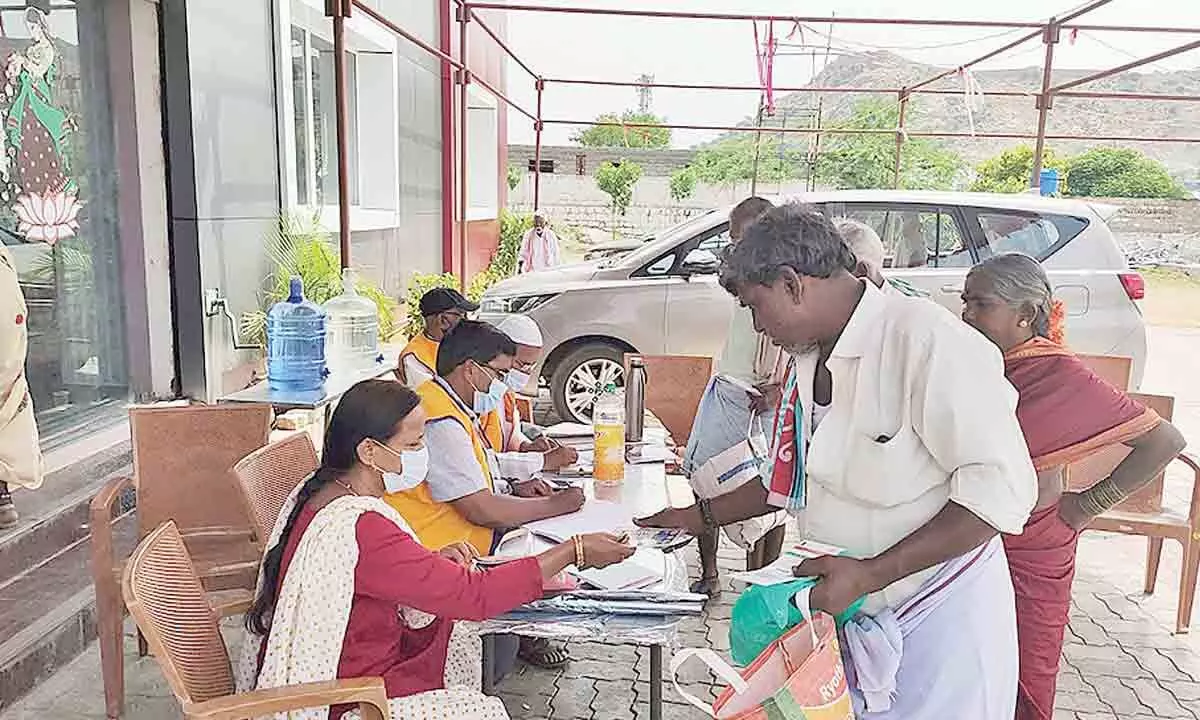Anantapur : Fading fingerprints deny Aadhaar benefits to elderly

Several septuagenarians and octogenarians fail in their biometric authentication due to changes in their skin texture
Beneficiaries of the government welfare schemes particularly senior citizens and elder ones are having a problem authenticating their identity by way of biometric fingerprint.
Anantapur : Beneficiaries of the government welfare schemes particularly senior citizens and elder ones are having a problem authenticating their identity by way of biometric fingerprint. Several beneficiaries particularly, septuagenarians and octogenarians are failing in their biometric authentication due to changes in their skin texture etc.
Biometric consultant Suresh Mylapille says that fingerprints of senior citizens are sometimes worn out due to age and can't be captured by machines. The findings are encouraging for UID as it will get rid of hurdles in access to pensions and welfare benefits. The problems of smudged biometrics also crop up in the case of persons involved in hard manual labour with finger getting cracked and calloused. The iris method of authentication, in the case of senior citizens, suffers from drawbacks like use of fingerprints.
The capture of biometric confirmation is problematic with changes in the iris due to age and insertion of medical devices like lenses or conditions like cataract or glaucoma, he added. Yet, the iris method scored higher than the fingerprint identification alone. UID has worked to increase options and sophistication of technology to reduce authentication failures among groups like seniors and labourers as this takes away from important objectives associated with Aadhaar such as facilitating bank access and direct transfers to vulnerable groups. The use of Aadhaar is intended to make transfer and withdrawal of pensions and life certificate authentications easier.
Lions Club Gooty in the district conducted eye cataract camp and sent nearly 80 patients to a private hospital in Kurnool. Nearly 30 patients were sent back, as their biometric was not accepted. Every day several veterans were sent back at register offices. Some are forced to give authorisation or register on the name of their kith and kin. Suresh says it is important that digital biometric identity systems be used by governments with a 'Do no Harm' mandate and the establishment of regulatory, enforcement and restorative frameworks ensuring data protection and privacy needs to transpire prior to the implementation of technological programmes and services. However, when and where large government bureaucracies are involved, the proper planning and execution of public service programmes very often result in ungainly outcomes, and are often qualitatively not guarantee able.








